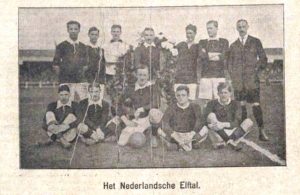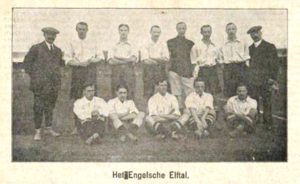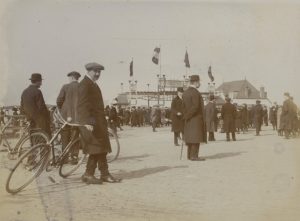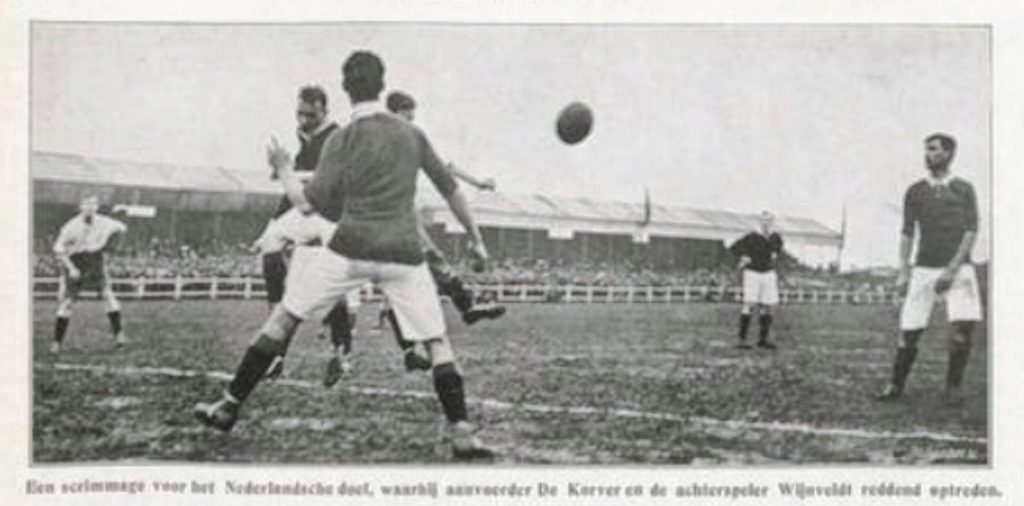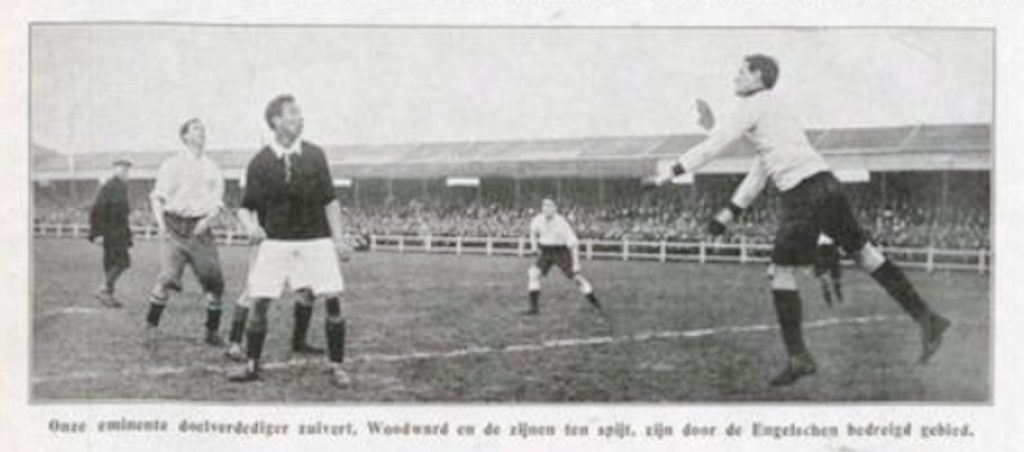March 24 is an important date in the history of Dutch football. On that day in 1913 the Dutch national team defeated England for the first time in history. And that at a time when everyone thought that the English, who had invented the football game, were unbeatable. The memorable match took place at Houtrust, the area in The Hague alongside Houtrustlaan, on what was then the field of football club H.B.S.
Before the match
Incidentally, the Netherlands were in good company. Apart from Denmark, no country on the continent had been able to defeat the English.
On the day of the match, the railways, anticipating the crowd, laid on extra trains to bring supporters to The Hague. In the city extra trams were running, decorated with flags. And so 17,000 spectators came to Houtrust. Those who did not yet have tickets could go to the scalpers who were selling black-market tickets outside the sports field.
The game
The spectators were welcomed by cheerful music from the Jagerskapel (‘Hunters band’). Among them were the necessary dignitaries:: the mayor of The Hague, the municipal secretary and 2 aldermen. Ministers, senior officials and soldiers, the chairman of the Olympic Committee and a member of the English delegation also had a seat in the gallery.
The party went on for quite some time in the streets of The Hague. A quote from one of the newspapers at the time: “Thousands filled the streets. The departing people gathered at the stations. However, everything went in an orderly manner”.
Great joy
The crazy joy of victory was extensively described in the newspapers. Reports of the football match were considerably longer than the reports about the Balkan war that raged in 1913. This was all the more remarkable because at that time newspapers did not yet have sports sections. Thus, reporting of the match often appeared on the same page as the war reports.
After the game, the Dutch football association offered the players and officials dinner at the posh restaurant Royal at Kneuterdijk. In his speech, the manager of the English team said that the Dutch team had deserved to win the game.
And thus the “miracle of Houtrust” was added to the history of Dutch football.
I also cover the history of sport in my city walks and bicycle tours.
*Photos: Delpher.nl
